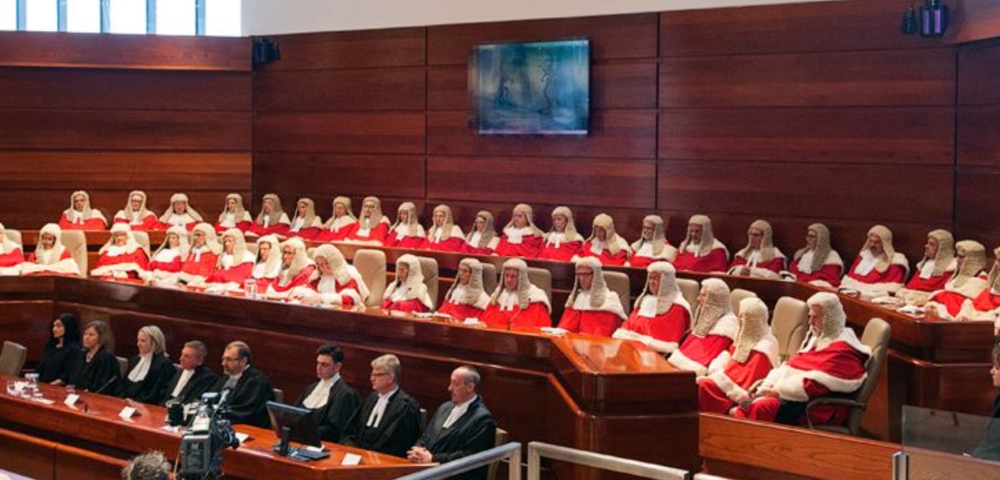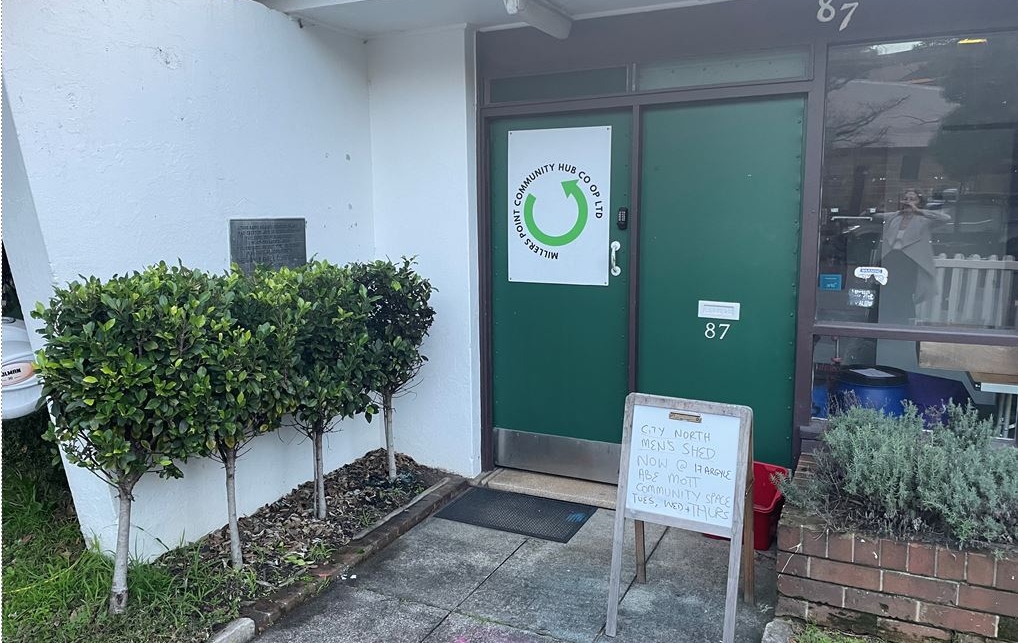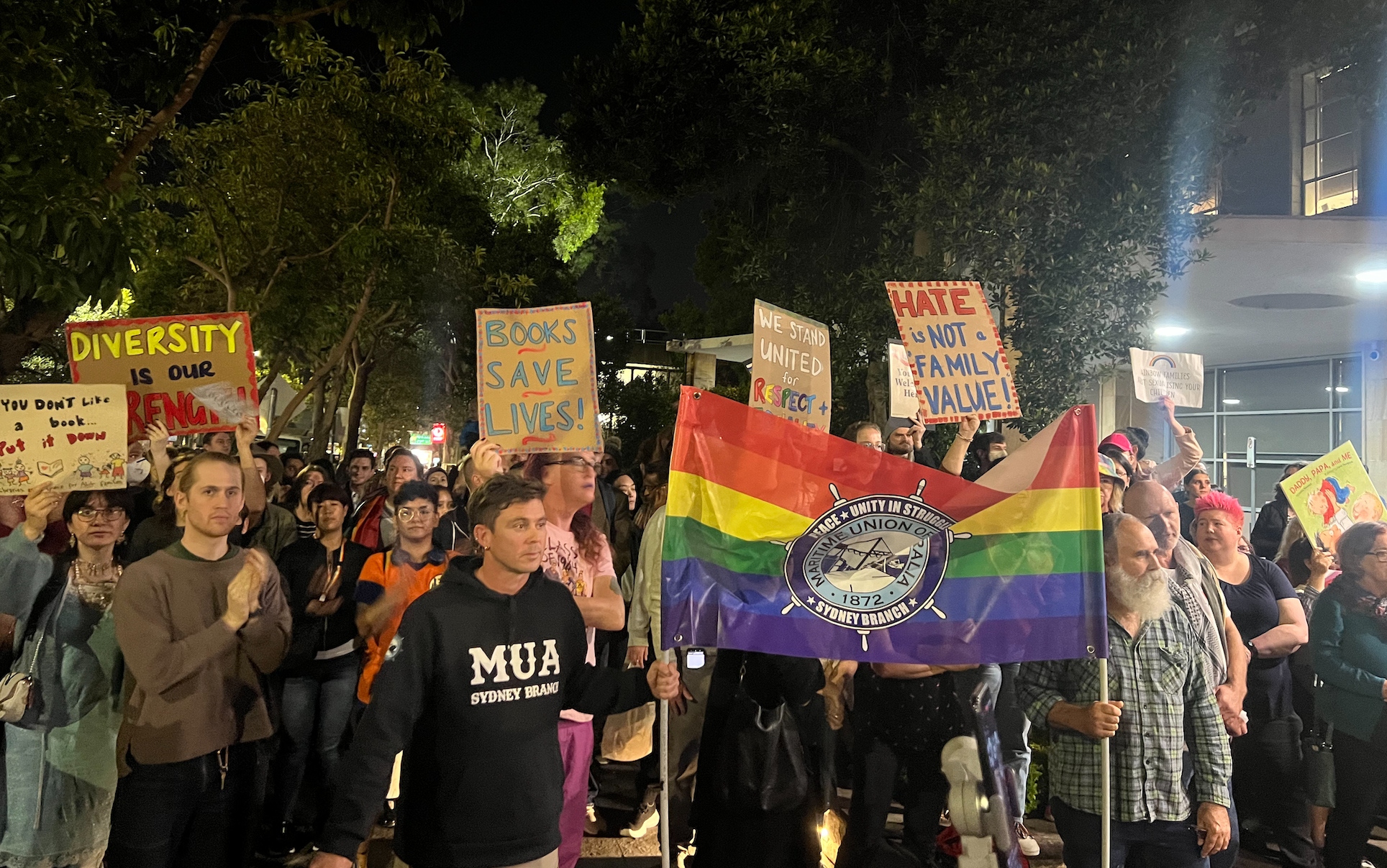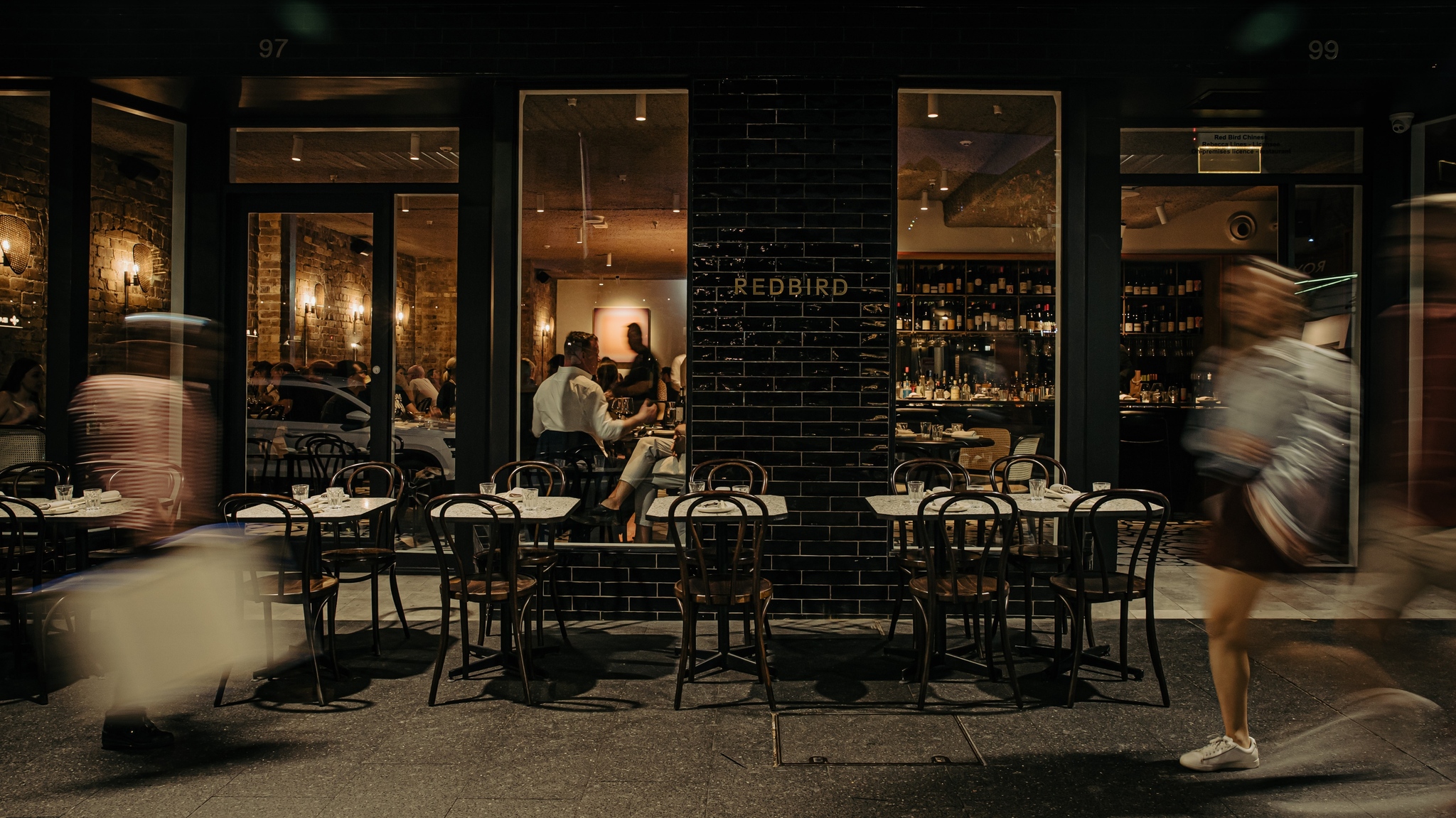
“Only a partial win”: Supreme Court rules NSW anti-protest laws as constitutionally invalid

by GRACE JOHNSON
In a win for the right to protest, the NSW Supreme Court found earlier this week that the state’s anti-protest laws, rushed through parliament last year, are constitutionally invalid.
In a decision announced on Wednesday 13 December, it was ruled that it is unconstitutionally invalid to criminalise activities that cause partial closures or redirections around ports and train stations.
The new laws came into place when climate protestors at Port Botany last year caused traffic disruptions. Dominique Jacobs and Helen Kvelde, members of activist group Knitting Nannas and were part of the climate action, then made a constitutional challenge to the new laws, which imposed a maximum penalty of a $22,000 fine, imprisonment for two years, or both.
It was argued that the laws did not uphold the implied freedom of political communication in the Commonwealth Constitution.
“This is a win for the unions, human rights organisations, and civil society groups who – alongside the Greens – have opposed the laws since they were rushed through Parliament in less than 72 hours with the shameful support of NSW Labor,” wrote Greens Member for Newtown Jenny Leong MP in an Instagram post.
“These draconian laws should never have been passed and Labor must now commit to repealing them in full.”
However, City Hub spoke to Lydia Shelly, President of the NSW Council for Civil Liberties (NSWCCL), who described the decision as “only a partial win for the right to protest.”
“The only way for the right to protest to be truly held as a right is for the remaining draconian anti protest laws to be repealed and a Bill of Rights to be introduced for the country,” she said.
“We are the only western liberal democratic country without one – and that is the only real way to ensure that our right to protest is protected.”
The laws were introduced by the former NSW Coalition Government but with the full support of then Labor opposition.
Greens MP and spokesperson for justice Sue Higginson said, “Draconian anti protest laws have no place in a mature functioning democracy. We have seen protestors targeted, searched, jailed and face harsh restrictive bail conditions under an anti protest regime that is now showing to be contrary to our fundamental rights of political communication in this country.”
In a statement about the Knitting Nannas, Ms Higginson echoed Ms Leong’s call for Labor to repeal the “draconian” laws, saying “These laws were brought in by the former Coalition Government with the support of Labor. Now that Labor is in Government, the Premier needs to take the steps to repeal these laws and walk back on the serious impingement on democratic rights.”
“It’s time to turn around the last decade of legislation that has been brought in to protect the interests of big corporations and erode the civil rights of the community. We need to repeal the anti-protest laws and protect the right to protest in law,” she continued.
Speaking to City Hub, Ms Shelly further called on the community.
“The way to protect the right to protest is that people need to realise that they are the leaders of our communities,” she said. “We cannot afford to wait until our rights and civil liberties are taken away – we must actively engage with other communities and the political system to cultivate a rights focused culture in our country.”
We must ensure that our governments understand that the public do not find the curtailing of civil liberties and our rights palatable. Ultimately, we need to be more intersectional in supporting other communities in their campaigns for Justice and rights – whether it be First Nations communities or the queer community. We cannot advocate for our own personal rights by ensuring others cannot exercise theirs.









